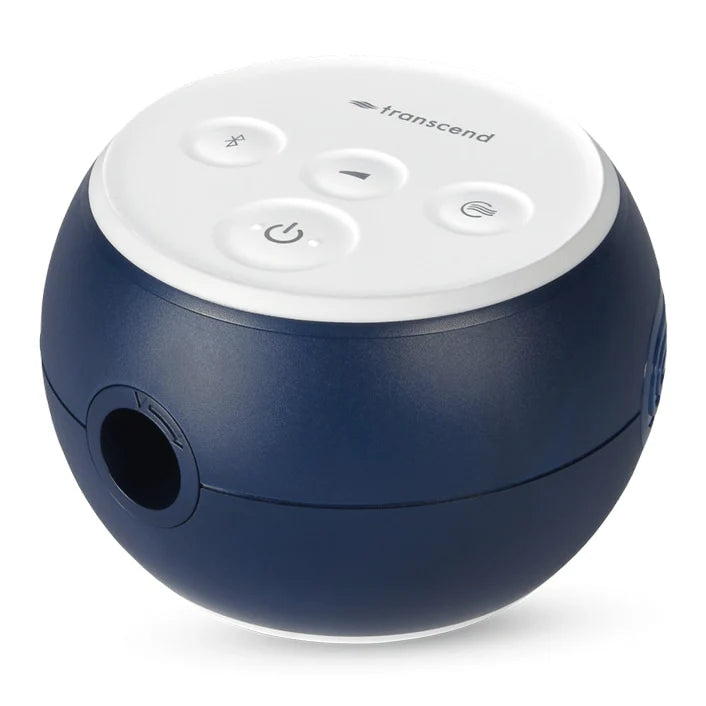If you’ve been struggling to get a good night's sleep lately, and you’re pretty sure that you’re experiencing some common sleep disorder or sleep apnea symptoms, it might be time to change your diet. What we choose to eat throughout the day and especially before bedtime can have a big impact on how well we sleep. If you do have sleep apnea, a diet high in gluten can make your symptoms worse. There is a strong connection between sleep apnea symptoms and gluten and it’s important to be aware of what you’re eating if you are trying to improve your condition. In this article, we’re going to take a look at some of the most common sleep apnea symptoms and help you to understand how a piece of toast before you hit the hay can leave you pretty exhausted in the morning.

Gluten & Sleep Apnea
The saying, you are what you eat, certainly rings true when we talk about sleep apnea and gluten. For people who suffer from celiac disease, the allergic reaction that they get when consuming gluten can cause sleep apnea to develop. As their body reacts to gluten, tonsils can enlarge in response, and upper airways can become narrower, making it more difficult to breathe. Heartburn can also damage the lining of the esophagus, and if this happens on a regular basis, it can make sleeping a bit of a gastrointestinal nightmare. Celiac disease can also cause anemia, weight loss, and fatigue. Although, you can still have trouble sleeping and experience sleep apnea symptoms without having celiac disease.
It’s thought that gluten, found in many carbs like bread, couscous, pasta, cereals, and many sweet treats, can make sleep apnea symptoms worse. Gluten can even cause neurological damage as well as make OSA symptoms worse. According to Kimberly Snyder, New York Times bestselling author and holistic wellness and spiritual teacher, around 3 million Americans currently have celiac disease, triggered by gluten. If you think you may be experiencing some symptoms of celiac disease your doctor may give you a referral to have an endoscopy. You can also experience gluten sensitivity without having Celiac disease, called non-celiac gluten sensitivity. Many people can enjoy a better quality of sleep when they switch to a gluten-free diet. A low gluten diet will prevent bloating, reduce inflammation, improve the look and feel of skin, increase your energy levels, improve mental clarity and lead to better sleep. This is because gluten can cause inflammation in the small intestine, which leads to a whole range of issues within the body, such as poor digestion, difficulty absorbing nutrients, and autoimmune disorders or autoimmune diseases too.

Obesity & Sleep Apnea Symptoms
Sleep apnea symptoms often include; loud snoring, observed episodes of stopped breathing during sleep, abrupt awakenings accompanied by gasping or in some cases choking, waking with a dry mouth, sore throat, and headache in the morning. If your body is trying to breakdown gluten while you sleep, this could be causing acid reflux(stomach acid coming up to your esophagus) and indigestion problems, which can impact your ability to breathe properly and lead to sleep problems or poor sleep.
A diet high in gluten could also be accompanied by unwanted weight gain. Being overweight can make sleep apnea symptoms far worse. Obstructive sleep apnea adversely affects multiple organs in the body, and weight loss has been found to improve sleep apnea symptoms in many patients and is thought to be a great way to treat the condition. Obesity is considered a major risk factor for the development and progression of sleep apnea, and this condition is actually more common in people who are overweight or obese.

Sleep Apnea Diet
To treat your own condition, it is a good idea to follow a sleep apnea diet plan. This involves reducing your intake of foods high in gluten and losing weight if you’re currently overweight or obese. A sleep apnea diet, rich in fresh fruit and vegetables, with lighter meals before bedtime and smaller portion sizes will help your body to relax and rest soundly at night and improve your overall quality of life.
For those looking to lose weight and improve their sleep apnea symptoms, consider a Mediterranean diet, with olive oil, nuts, lentils, white meat, and zero junk or processed foods. This sleep apnea diet will help you drop excess weight and feel energized throughout the day. According to the European Respiratory Journal, obese individuals suffering from obstructive sleep apnea can improve their sleep apnea symptoms by switching to a Mediterranean Diet. A study that observed 40 obese patients, over a six-month period, found that when changing to a diet low in gluten and rich in vitamins, minerals, nutrients, and low in saturated fat, individuals suffering from sleep apnea, slept more soundly. The study also found that changing to a Mediterranean diet improved their sleep apnea symptoms.
So, if you’re looking for a pretty delicious and easy way to improve your quality of sleep, it’s time to start watching what you eat, reducing your intake of gluten, and dropping a dress size or two by getting active. Not only will a healthier lifestyle help improve your sleep apnea symptoms but you’ll also see benefits in other aspects of your life too.
To find out if you are suffering from sleep apnea, take our sleep apnea quiz here.
For more information about sleep apnea check out our FAQ section.

















































